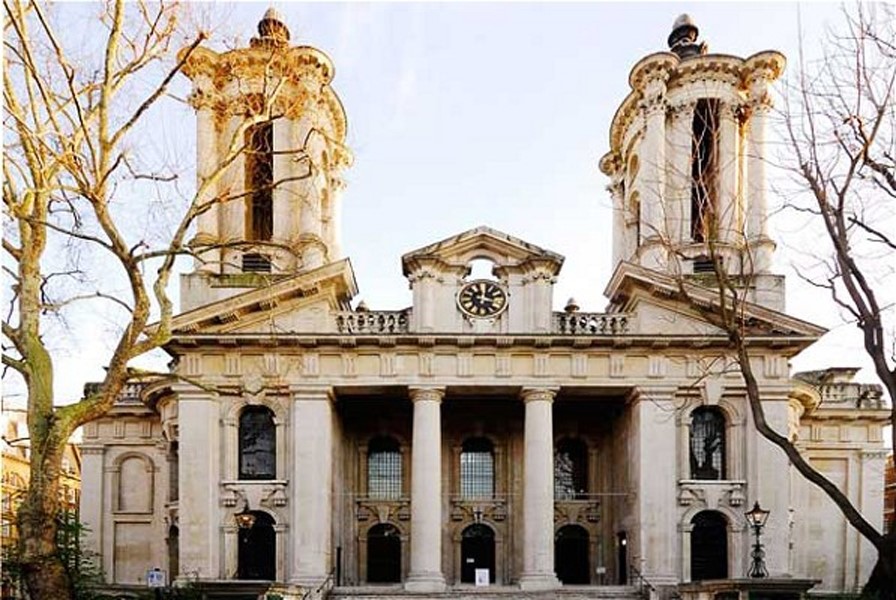This month's musical recommendations from Sir Norman Rosenthal include Franz Schubert, the great Russian conductor Valery Gergiev and the extraordinary American musical outsider Conlon Nancarrow...
As I write April's music blog for you, my head is full of the music of Franz Schubert, surely the most human of all the great composers. Over the past week, the BBC have been playing the totality of his astonishing output that consists of almost a thousand works. He died horribly of syphilis aged 31, and thinking of what he might have achieved had he lived another few decades is even more tantalising than thinking of Mozart. But equally, the extraordinary sense of existential resignation that permeates so much of Schubert's later work might not have come about in quite the same way. In any case, by going to your Radio 3 iPlayer, you can relive this extraordinary experience, at least in a selective way.
In spite of the wonderful weather these last days, it has been difficult for me to leave my chair at home and even turn off the radio at night! On April 23, in what should be one of the greatest of all the recitals, the wonderful Mitsuko Uchida is performing at the Festival Hall, what is arguably Schubert's final testament. His last three piano sonatas – all written just before he died, and each of extraordinary and at times terrifying intensity, but which are not without their moments of delight, as they represent in music the privileges of being alive.
"April will be a great month to explore facets of German Romanticism and the cult of dying young and achieving great things"
The week leading up to Easter is dominated by three great choral works. At the Barbican, the great Russian conductor, Valery Gergiev is conducting his splendid opera orchestra from St Petersburg in Wagner's last opera, Parsifal, which tells the story of a young fool who stumbles into an agonised Christian community, and who after a long journey, ultimately finds redemption. The following night, Gergiev conducts Verdi's Requiem – arguably the most operatic of all pieces of religious music. Both these events have fantastic Russian singers, and I know the conductor is unbelievably suited to both these masterpieces of late 19th century music. However, for equally profound, but arguably more genuinely devout music, and to recover from the former, it might be wise to go and hear the great St John Passion of Johann Sebastian Bach, that is being performed with a wonderful cast, including Ian Bostridge, at St John's Smith Square. A great baroque church just behind the Houses of Parliament that was converted some years ago into a splendid concert hall.
Not that much full-scale opera performances in April, however at the Barbican, the great veteran Sir Colin Davis is twice conducting a concert performance of Carl Maria von Weber's Die Freischutz. Weber was another great Germanic composer whose life was cut off short and this opera, which was written and performed in 1821. Astonishingly ahead of its time, both in terms of subject matter and musical style it represents perhaps the epitome of the full blown Romantic tradition with its spooky story of magic sharp shooting in the German forests. I recently saw a fantastic production in Germany that had wild boar roaming about the stage amongst the singers! Then there are two contemporary operas of great interest. One on April 26 is by the strangely tuneful and very talented Irish composer Gerald Barry, who has composed an opera of The Importance of Being Ernest. One of his great supporters is the composer Tom Adès, who will be conducting what should be a very interesting and amusing evening built around Oscar, or rather I should say Bunbury and Lady Bracknell. English National Opera are staging at the Hampstead Theatre Club six performances of the one-act opera Jacob Lenz by the prolific and powerful German composer, Wolfgang Rihm. It tells the story of the mental disintegration of one of Germany's leading eighteenth century poets – a friend of Goethe – and whose life inspired one of the great German writers of the early 19th century, Georg Buchner, the author of Wozzeck and The Death of Danton, and himself too, the victim of very early death. April will be a great month to explore facets of German Romanticism and the cult of dying young and achieving great things.
There are so many concerts to choose from in the second half of April. At the Royal Festival Hall, Daniel Barenboim is conducting his own orchestra from Berlin – the Staatskapelle – in three concerts that feature the last three symphonies of Anton Bruckner, arguably the Austrian composer who wrote the symphonies that Wagner himself never got around to writing. Back at the Barbican, on April 14, one of the most talented young conductors around today, Andris Nelsons, is conducting his own orchestra, The City of Birmingham Symphony Orchestra in Elgar's The Dream of Gerontius.
I am making sure I am in London on April 21 to hear a day devoted to the work of the extraordinary American musical outsider, Conlon Nancarrow. On that day, at the Queen Elizabeth Hall, you can try to get to grips with this composer, who goes even beyond John Cage in his radicalism, who was making works for mechanical instruments because what he heard in his head, and wanted to make possible, was incapable of being performed by human hands. And this was of course before the age of electronic and computer designed music.
